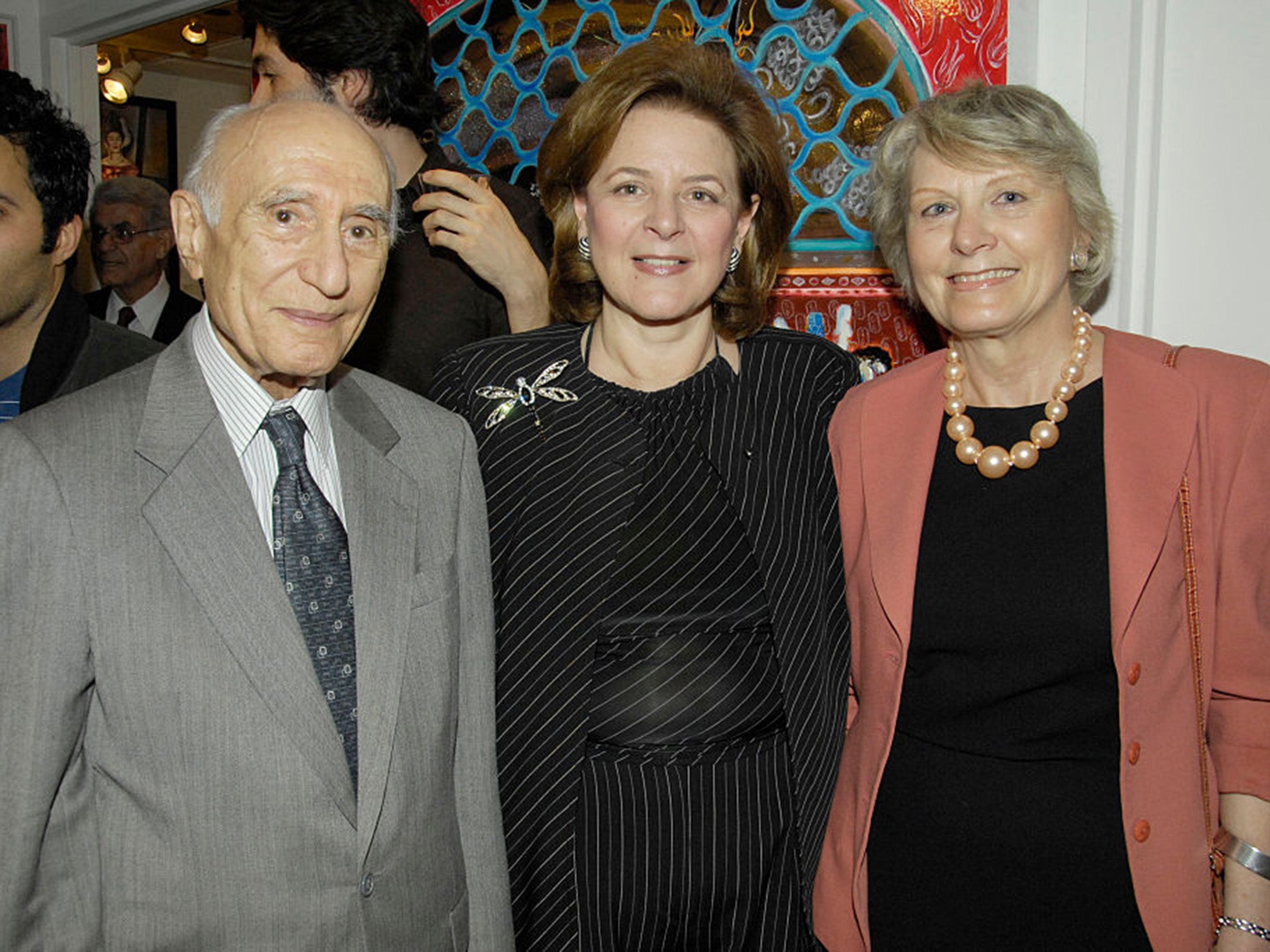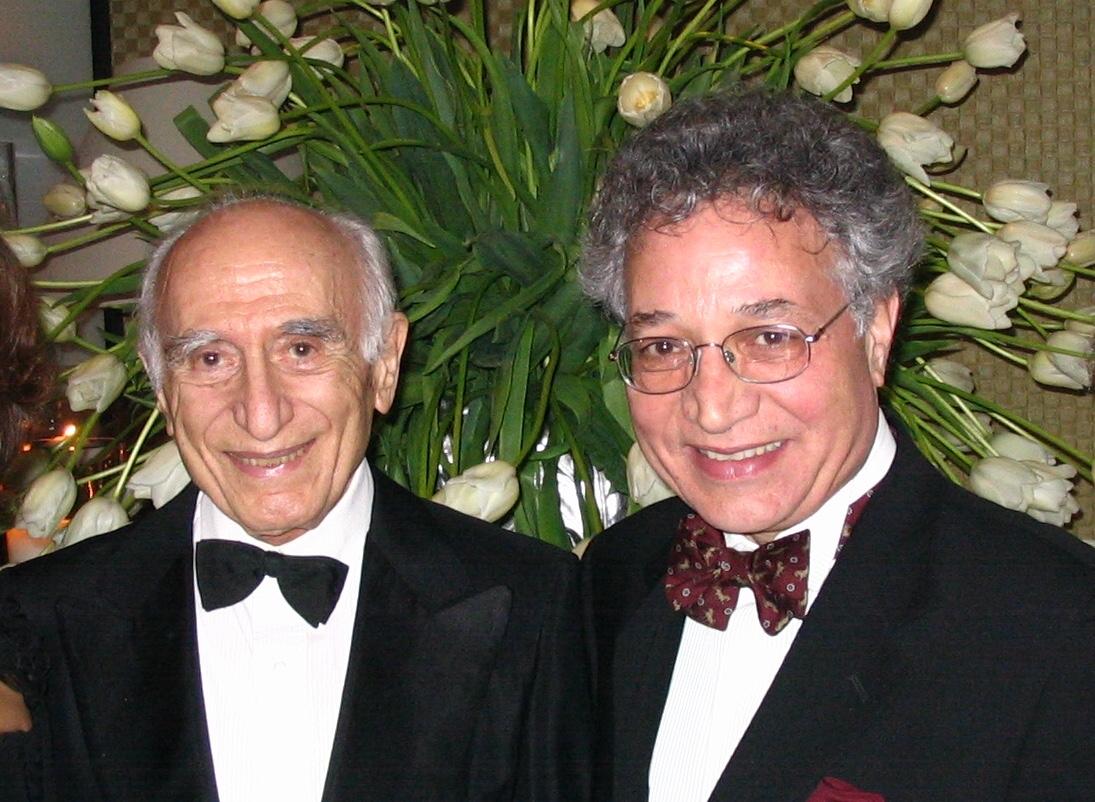Ehsan Yarshater: Historian who transformed the west’s understanding of Iran’s history and languages
Having lost his parents as a boy, he found his calling in scholarship, going from the ‘Cambridge History of Iran’ to the colossal English-language resource that is ‘Encyclopedia Iranica’

Your support helps us to tell the story
From reproductive rights to climate change to Big Tech, The Independent is on the ground when the story is developing. Whether it's investigating the financials of Elon Musk's pro-Trump PAC or producing our latest documentary, 'The A Word', which shines a light on the American women fighting for reproductive rights, we know how important it is to parse out the facts from the messaging.
At such a critical moment in US history, we need reporters on the ground. Your donation allows us to keep sending journalists to speak to both sides of the story.
The Independent is trusted by Americans across the entire political spectrum. And unlike many other quality news outlets, we choose not to lock Americans out of our reporting and analysis with paywalls. We believe quality journalism should be available to everyone, paid for by those who can afford it.
Your support makes all the difference.In the years of his retirement, which were really not like a retirement, Ehsan Yarshater, who has died aged 98, used to joke that he had been afflicted by a bug.
It made him think that if an important scholarly undertaking had been left undone, he was the one destined to do it – and do it the eminent historian and linguist did.
He founded several progressive publishing initiatives in Iran and the US; worked with Unesco to register Iran as a world culture; edited a number of books in English on the literary heritage of the Persian language and, most impressively, the colossal Encyclopaedia Iranica, which he envisioned, oversaw and led as editor-in-chief.
Yarshater was born in 1920 in the western Iranian city of Hamedan to Jewish parents recently converted to Baha'ism. They both died before he was 12. By sheer will-power, stamina, and hard work as a boy, he overcame poverty to put himself through level after level of education, eventually to rise in his twenties to the attention Ali-Asghar Hekmat, once Iran’s minister of education, and a key figure in Tehran University’s newly established department of Persian literature – under his guidance Yarshater received his first PhD in Persian literature in 1947.
In the 1940s Yarshater was also to meet and befriend several other prominent Iranian scholars and statesmen: people like Seyed Hassan Taqizadeh, the constitutionalist of the early 20th century, an ageing scholar of ancient Iranian history and culture mentored Yarshater, who accompanied him on trips abroad; or Ebrahim Pourdavoud, a German-educated professor of ancient Iranian languages, who took him under his wing and whose all-important academic position Ehsan Yarshater was to occupy sometime in the following decade.
In a country where politics had so ruthlessly supplanted culture in the early 1950s, Yarshater’s focus and perseverance came in handy.

The support of some of Iran’s cultural luminaries soon catapulted him from one ambition to another.
By 1954 Yarshater found his way into the circle of Assadollah Alam, a courtier and politician reputed to be one of Shah Mohammad-Reza Pahlavi’s closest friends and confidants after the political turmoil of the 1953 coup d’état.
Alam turned out to be a crucial presence in Yarshater’s public and personal life. He was an avid art collector and he asked Yarshater to purchase prime artefacts, valuable first-edition books, and other artistic goods; doing this, Yarshater began to buy such valuable items for himself as well, a fact that soon made him independently wealthy as well as an expert collector.
It was Alam also who supported and advanced Yarshater’s idea of establishing an innovative scholarly enterprise in Iran, named The Centre for Book Translation and Publication, funded by Iran’s royal court but run as an autonomous not-for-profit corporation.
And it was Alam, and later, Iran’s prime minister Jafar Sharif-Emami, who supported and implemented several other of Yarshater’s entrepreneurial ideas.
These were timely moves, too, as they signalled that post-1953 coup, governments of Iran did indeed have an abiding interest in sponsoring intellectual projects too. The Book Publication Centre, however, was probably the most culturally consequential of Yarshater’s ideas.
It focused on Persian translations of seminal works by great writers of the west, such as Plato and Goethe. It grew to include scholarly editions of medieval Arabic and Persian texts. There was also the publication of more than 500 volumes of series spanning seven categories.
In the process, a standard of scholarly translation, editing and publishing was established hitherto unprecedented in Iran.
At around the same time, Yarshater made the acquaintance of Professor Walter Henning, a German linguist internationally recognised as a dialectologist.
Henning had travelled to Iran in 1950 to explore those Iranian dialects that, taken together, formed language intermediaries between pre-Islamic languages of Iran and modern Persian, and he persuaded Yarshater first to be his aide and later his student to work towards a second PhD degree at the University of London’s School of Oriental and African Studies.
Two years into the activity for the Centre for Book Production and Translation, Yarshater left Iran. The young Iraj Afshar, another towering figure in Persian studies, was left in charge of the Book Publication enterprise – and a unique melange of medieval manuscript traditions and novel textual scholarship.
Yarshater, however, didn’t quite let go of the reins – he believed his leadership of the translation and publication processes were key to maintaining standards.
Once in London, Yarshater divided his vast energies between his leadership-in-absentia of the Book Publication Centre and his new research interest in dialectology.
His professor and mentor, Walter Bruno Henning, a colossus in the field of ancient Iranian languages, had fled Germany in 1937 to spend his time teaching and doing research in London.
He had met Yarshater when he first travelled to Iran in 1950 to investigate Tati, an old Iranian dialect which had survived in 40-odd remote villages for thousands of years and which therefore held the key, Henning believed, to understanding the linkages between ancient and contemporary languages of Iran. He asked Yarshater to lead the field work, a task that necessitated shuttling back and forth between Iran and England in the late Fifties, This led to Yarshater’s second doctoral degree in 1960.
In the early Sixties, Cambridge University sought Yarshater’s help in contributing to a grand project: a definitive history of Iran – from its very beginnings. This was an offer that would not only engage the Yarshater’s attention for the next two decades, both in Iran and in the United States, but would also catapult him into the new, extremely consequential role of a bona fide academic historian, something for which Yarshater was only marginally prepared.
Then, as if all this were not enough, in 1968, New York’s Columbia University appointed Yarshater first as a visiting associate professor and subsequently as one to lead the university’s recently instituted Iranian Studies Program in 1970.
His veering towards ancient Iranian history, an offshoot of all the other giddying scholarly preoccupations, was confirmed in 1970s, when he was appointed editor of two volumes of the eight-volume Cambridge History of Iran.
One of its aims was to assess Iran’s contribution to the civilisation of the world – this was surely the feature Yarshater most relished.
In his introduction to the first of the two books in the series, he summed up its concerns: “What makes cultures prosper and wilt, religious systems work or fail?”
And when it came to the other side of the historian’s ledger – the modern scholarly view of premodern historiography in Iran, he identified a problem: “Historical works were often meant to move more than to inform. They belong to a tradition with its own particular norms and purposes and therefore are not ideal tools to serve analytical history as understood in the west.”
It was, I believe, this personal challenge more than any other single feature of this project that has made The Cambridge History of Iran the most referenced scholarly undertaking of the 20th century when it comes to Iran and its contribution to the steady march of civilisation before the advent of Islam.
Some years later, Yarshater would bring the same zeal and zest for implementation, to his conceptualisation of The Encycolpaedia Iranica, his magnum opus in one sense, his retirement project in another – he started it at the age of 52.
This became a grand scholarly expanse: a 16-volume compendium of first-rate scholarly writings by some 1,600 academicians around the world, on greater Iran’s languages and literary traditions, historiographic and anthropological formations. Iranica stands as the most staggeringly diverse summation of the contours of Iran’s changing and challenging culture through all known time – from the famed stew abgusht to zephyr, the breeze in Persian love poetry that brings the lover’s message to her or his beloved.
Ehsan Yarshater, historian and linguist, born 3 April 1920, died 1 September 2018
Professor Ahmad Karimi-Hakkak is emeritus professor of Persian language, literature and culture at the University of Maryland and visiting professor at the department of Near Eastern languages and cultures at the University of California in Los Angeles
Join our commenting forum
Join thought-provoking conversations, follow other Independent readers and see their replies
Comments